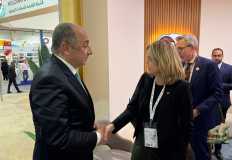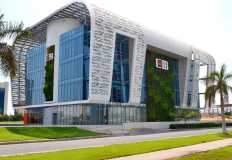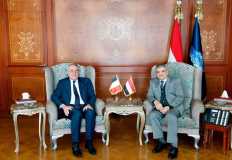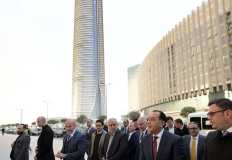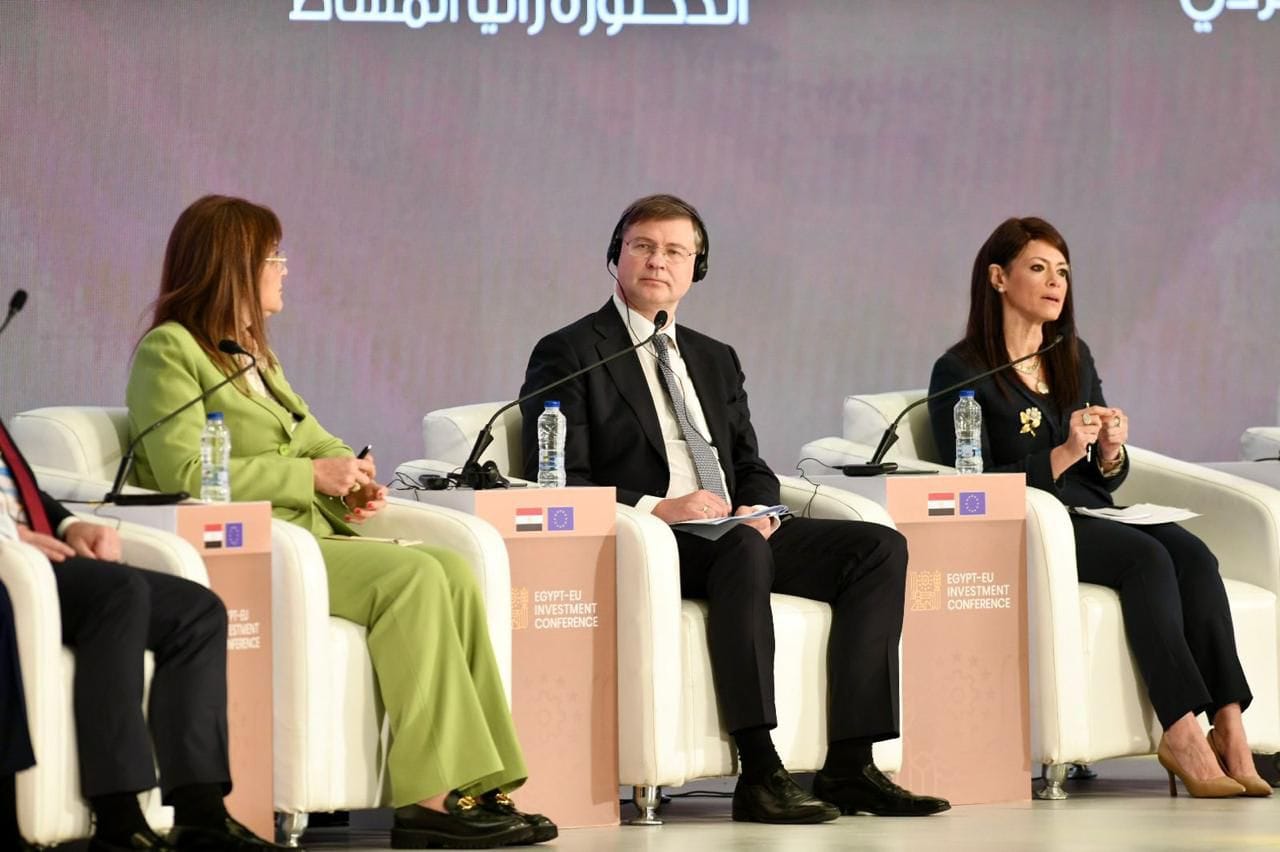
Minister of International Cooperation, Dr. Rania Al-Mashat, revealed on Saturday that the European Union has provided $5.5 billion in funding to the private sector in Egypt over the past four years. An additional $7.3 billion has been allocated to government sectors.
The announcement came during the
Minister’s participation in the opening session of the Egyptian-European
Investment Conference, entitled “Presenting the Economic Reform Agenda and the
Investment Climate in Egypt.”
Participating in the session
were: Dr. Hala Al-Saeed, Minister of Planning and Economic Development, Valdis
Dombrovskis, Deputy Executive Director of the European Commission, Oliver
Varhelyi, Commissioner for Neighborhood and Enlargement of the European
Commission, Anna Berdi, Vice President of the World Bank Group for Operations,
and Karim Awad, CEO of Hermes Holding Group.
During the session, the Minister
of International Cooperation spoke about the role of economic relations between
Egypt and the European Union within the Team Europe initiative, in attracting
private sector investments, integration between European institutions and
countries and other development partners in creating the investment climate in
Egypt, and the models and examples achieved in this regard. She also discussed
how Egypt's government reforms are improving economic ties with Europe and
creating new opportunities for investment.
The Minister of International
Cooperation highlighted the significant progress in economic relations between
Egypt and the European Union since 2020. This progress is shown in three key
areas:
-Improved Quality of Joint
Projects: Both government and private sectors are working together on
high-quality projects in various priority development areas.
-Multiple Financing
Options: The European Union and European financing institutions offer
various financing mechanisms for both government and private sectors through
the Team Europe initiative.
-Stronger
Collaboration: There's increased integration between the European Union
and other financing institutions to invest in Egyptian private sector projects.
Over four years, the partnership
funded projects exceeding $12.8 billion. This supported both government ($7.3
billion) and private sector projects ($5.5 billion) in Egypt and Europe. The
funding attracted European investments in essential areas These include
sustainable infrastructure, renewable energy and electricity, food security,
health and education, sustainable transportation, water and sanitation
networks, small, medium and micro enterprises, environment, solid waste
management, women’s empowerment, and other sectors.
These investments benefitted a
wide range of private businesses, from large corporations to small startups and
individual entrepreneurs.
She explained that the European
Union and its financial institutions offer various attractive options for
private sector investment. These include: soft credit lines, as well as
contributions to corporate capital, and soft financing for the private sector
that is much lower than the cost of the local and external market, in addition
to technical support and consultations, and feasibility studies for
implementing projects.
She highlighted the success of
the European Investment Bank (EIB), which invested €790 million in local and
regional investment funds, provided €3.1 billion in credit lines to Egyptian
banks, like Al-Ahly and Misr Alexandria and supported over 13,000 projects
for medium-sized companies, creating 242,000 jobs.
Over 80% of the European Bank for
Reconstruction and Development's (EBRD) investments in Egypt have been directed
to the private sector. From 2017 to 2023, EBRD invested approximately $119
million in Egyptian companies operating in the European Union, primarily in the
agriculture, manufacturing, and services sectors. During the same period, from
2014 to 2024, EBRD invested around $456 million in European companies operating
in Egypt, focusing on sectors such as energy, agriculture, manufacturing, and
services.
Rania Al-Mashat stressed that
these developments did not come out of nowhere. They stem from government
reforms and strategies, including setting the “electrical supply tariff” in
2014, launching the national strategy for green hydrogen development, and the
implementation of plans to stimulate investment in renewable energy sources.
These initiatives have fostered a more attractive environment for institutional
investors, encouraging their participation in these key sectors within the
Egyptian economy.
